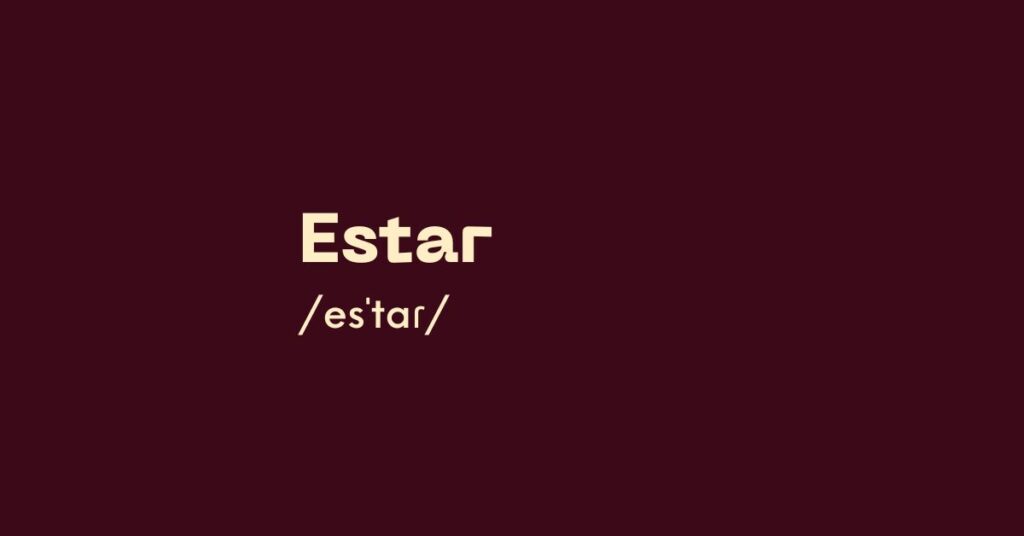Today’s Spanish word of the day is “estar”.
It’s one of the two Spanish verbs that translate as “to be”, the other being “ser”.
It’s mainly used for referring to temporary states as well as the location of things, while “ser” is used more for unchanging characteristics, dates and times.
“Estar” is an irregular verb. Here’s a quick overview of its conjugation in the present tense:
- Yo estoy – I am
- Tú estás – You are (informal singular)
- Él/Ella/Usted está – He/She is, you are (formal singular)
- Nosotros/Nosotras estamos – We are
- Vosotros/Vosotras estáis – You are (informal plural, only used in Spain)
- Ellos/Ellas/Ustedes están – They are, you are (plural)
Example sentences
Estoy cansado.
I am tired.
Ellos están de vacaciones.
They are on vacation.
¿Estás listo?
Are you ready?
Estoy aprendiendo español.
I am learning Spanish.
Ella está enferma.
She is sick.
Estar vs. ser
Knowing when to use “estar” and when to use “ser” can be very confusing.
A common rule of thumb is that “estar” tends to be used for temporary states, such as feeling tired (“estoy cansado” – “I am tired”), whereas “ser” tends to be used for more permanent characteristics, such as being tall (“soy alto” – “I am tall”).
However, things aren’t quite this simple. For example, when referring to the location of buildings, cities and countries, you use “estar” (“La catedral está junto a la plaza” – “The cathedral is next to the square”). The cathedral might have been there for hundreds of years, so it’s clearly not the case that “estar” only refers to fleeting temporary states.
Here’s a quick summary of when to use “ser” and when to use “estar”:
- Use “ser” for: Permanent or long-lasting characteristics (nationality, physical traits, profession etc.), times and dates (“hoy es lunes” – “today is Monday”), location of events (“La fiesta es en la casa de Juan” – “The party is at Juan’s house”), relationships (“ella es mi madre” – “she is my mother”).
- Use “estar” for: Temporary characteristics (emotions, temporary appearance or condition of something/someone), actions in progress (“estoy llegando” – “I am arriving”), location.

